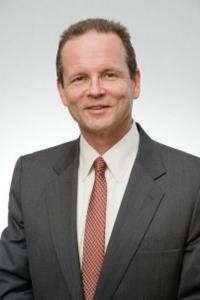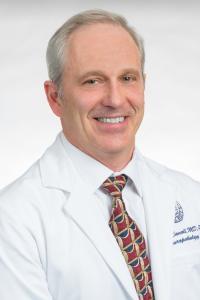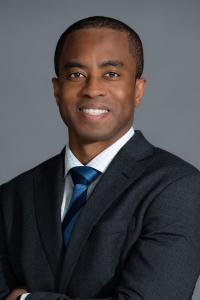LAB WEEK 2025: Featuring The Bartoli Brain Tumor Lab
Spotlighting Our New Members
In honor of Medical Laboratory Professionals Week: April 20-26th (Lab Week), an annual celebration of medical laboratory professionals and pathologists who play a vital role in health care and patient advocacy, our department would like to spotlight some of the Bartoli Brain Tumor Lab’s newest members. Learn more about these incredible scientists, how their interests in brain tumor research were sparked and what they’re looking forward in this rapidly evolving field of neurosurgery. Says Dr. Jeffrey Bruce, “We greatly appreciate these highly admirable and capable warriors joining our fight against brain cancer.”
Misha Amini, MD, Staff Associate
Misha is originally from Gothenburg, Sweden. As to what drew him to focus on brain tumors, Misha shares, “Early on in medical school, I developed a strong interest in neuroscience. During my clinical rotations, I was deeply moved by the devastating prognosis faced by patients with glioblastoma. I understood that I wanted to dedicate my research to better understanding this disease and ultimately improving the treatments available for these patients.” Misha shares his experience working in the lab, “It’s an amazing environment to work and grow in. The Neurological Institute has a rich history and continues to inspire our current work. My PIs, Dr. Bruce and Dr. Canoll, along with the wonderful coworkers in the lab, and the vast expertise and deeply collaborative spirit across CUMC, make this place truly second to none.”
On the horizon of brain tumor research, Misha shares, “I am currently working on two exciting lab projects. In the first one, we are trying to understand better the cancer cells that evade therapy and how they influence other cells in their surrounding, specifically how they influence the immune cells. In the other project, we are working on unveiling the relationship between neurons and cancer cells. Getting a deeper understanding of these interactions is very exciting for me!”
Abby Brand, PhD Student
Abby is originally from St. Louis, Missouri. With a research background in neurological diseases, Abby shares, "Columbia's leadership in brain tumor research immediately caught my attention. After learning about the advanced projects in the Bartoli Brain Tumor Lab and meeting their incredible team, I became eager to contribute to their work and make a meaningful difference in patients' lives."
On working at CUMC Neurosurgery, Abby says, "The environment is fast-paced, and we're constantly striving to enhance our research methods to gain a deeper understanding of each patient's tumor. The Bartoli Brain Tumor Bank is a unique asset that allows us to test tissue responses to novel drugs, aiming to bring the most promising treatments to the clinic." Finally, on what she's looking forward to studying, Abby shared, "I'm super excited about our technological advancements, which use single-cell sequencing to analyze tumor subpopulations in patient samples. Since not all tumor cells respond to therapies equally, leveraging this technique is key to creating the most effective treatment combinations."
Clara Stucke, Tumor Bank Technician
Clara has lived in many places, including across six states and five countries, but spent most of her childhood in Knoxville, Tennessee. Her undergraduate background in neuroscience sparked her passion for brain tumor research. Clara shares, "I became committed to advancing research that can lead to effective treatments for neurological and psychiatric conditions. Eager to delve into translational research after graduation, I was excited by the Bruce-Canoll lab's convection-enhanced delivery system and the chance to work on the interface between research and clinical work."
Clara highlights the lab's unique culture: "I love working at CUMC Neurosurgery. There is a strong culture of collaboration, and it's clear that everyone is genuinely passionate about their research and eager to share their knowledge. The Bruce-Canoll lab is such a special group of people, all of whom have taken the time to teach me new skills, explain concepts, and offer advice on my career in medicine. I feel lucky to work amongst such a talented and supportive team." As Clara looks to the future of the field, she shares, "I'm excited to see how this research can advance current cancer treatments, offering patients more effective therapies and improving their chances at recovery. As a tumor bank technician, I witness and am involved in many stages of the research process—from the tissue collection, treatment, staining, analysis, and more—so it is exciting to see how these projects progress."
Ashwin Viswanathan, Medical Student, Neurobiology and Behavior
Ashwin grew up in Long Island and studied neuroscience and political science as an undergrad at Cornell University in Ithaca, NY. As to how he became interested in brain tumors, Ashwin says, "I first got excited about brain tumor research after listening to Dr. Peter Canoll's lecture on brain tumor pathology during my first year of medical school. This pushed me to meet with others in the research group, like Dr. Brian Gill and Dr. Jeffrey Bruce, who excited me about the field's future and where my interests could fit in. I've since become very interested in studying tumor-associated seizures and thinking of new ways to study and treat epilepsy for patients with brain tumors, and I have found myself in the perfect environment to combine my past experiences in Neuroscience with my clinical interests in neuro-oncology and epilepsy."
Ashwin shared, "One of the strengths of our lab and research group is the amount of collaboration we have. Medical students and residents rotating through our lab keep our translational focuses centered. Having a network of leading experts across our Neurosurgery, Neurology, and Neuropathology departments has helped me develop more advanced research questions and offered me the expertise and tools to study them." For the future of brain tumor research, Ashwin shared, "I'm excited to build upon the great work of others in our group to both study what drives tumor-associated seizures and identify new therapies that could eventually benefit patients. We've made a lot of progress in understanding how tumors directly cause dysfunction in the brain, highlighted in our recent paper in the most recent journal issue of Neuron, and I look forward to expanding on these studies."






